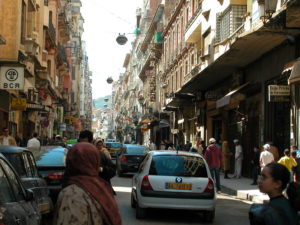5 Facts about Healthcare in Algeria

Algeria is located on the Northern coast of Africa and is home to 42.2 million people. The nation adopted a universal single-payer healthcare system in 1984, which allows anyone to access healthcare at no cost to themselves. The nation’s economy is largely reliant on oil prices and sales, but these have proven to be volatile in the past several decades. Due to this economic instability, 23% of the population lives below the poverty line, even though the nation has some of the largest oil and gas reserves in the world. What is even more startling is the 29% youth unemployment rate. Given that such a large segment of the population falls below the poverty line and cannot find work, many Algerians are reliant on their publicly funded healthcare system to provide for them in times of need. Here are five facts about healthcare in Algeria in light of the country’s economic hardship.
5 Facts About Healthcare in Algeria
- The Public Healthcare Network has Struggled Recently: In 2019, Algeria’s public healthcare network ranked as the 173rd most secure healthcare network out of 195 nations. This stems from the chronic economic insecurity that dominated the nation due to drops in oil prices. The “breakeven” price for oil in Algeria was $157 per barrel in 2020. However, the price fell to just $20 a barrel, leaving the nation to stumble upon hard times. Yahia Zoubir notes that many Algerian medical professionals have chosen to take their practices out of the nation due to the “chronically insufficient healthcare system.”
- A Private Healthcare Sector Exists within Algeria: In 2015, there were 250 operational private clinics, and the government approved plans for the construction of the first private hospital in the nation. Many questioned the utility of the private sector because it fills in the gaps of the public sector, but it can only serve those who could afford it. Essentially, the presence of the private sector heightens disparity in the quality of care that the healthcare system provides to Algerians in different socio-economic classes.
- COVID-19 has Highlighted Major Issues with the Public Healthcare Network: As noted before, the national economy took major hits in 2019, and the nation announced a 50% cut in public spending as a result. Due to an inability to provide physicians with the necessary equipment and a general lack of human capital, there were 17 beds per 10,000 Algerians, according to the World Health Organization (WHO) in 2015. Because of this limited hospital capacity, COVID-19 patients easily overran public healthcare in Algeria.
- Where Health Officials Fail, the People Provide: Throughout the pandemic, government officials were notorious for failing to communicate with the public to slow the spread of the virus. Villages located further away from urban centers encountered these issues most prominently. Despite this, the Algerian people demonstrated resilient and innovative capabilities. The United Nations Development Program notes two distinct ways Algerians are reacting to the pandemic. First, in urban centers, many merchants are turning away from their cash-based system and moving toward e-commerce. E-commerce limits the amount of person-to-person contact involved in economic transitions of all sorts. Meanwhile, villages are working together to limit the spread of the virus themselves. Notably, a village called Tifilkout went into self-confinement to protect its citizens and other villages in the area. This plan originated from the tradition of “wise men” leading the village. These solutions demonstrate that while healthcare in Algeria may be unstable, the people will still assist one another regardless.
- The Algerian Struggle has Incited a Global Response: Non-Governmental Organizations (NGOs) have also stepped up to assist in COVID-19 relief. The Bill and Melinda Gates Foundation has pledged to donate $20 million to fight COVID-19 in Africa. The money will go towards ensuring that PPE and treatments are available to all who need them, not just those who can pay the most. While these efforts going towards Africa generally, The Bill and Melinda Gates Foundation has demonstrated its commitment to Algeria in the past. In 2002, it joined groups working to fight the spread of malaria, and through its assistance, Algeria was the second nation in Africa to become malaria-free.
Healthcare in Algeria has struggled for years, and the COVID-19 pandemic exposed many of its weaknesses. However, the pandemic has also allowed communities to respond to such weaknesses in full force. While Algerians are working to protect one another through e-commerce and social distancing, the international community is banding together to support the nation as well.
– Allison Moss
Photo: Flickr
